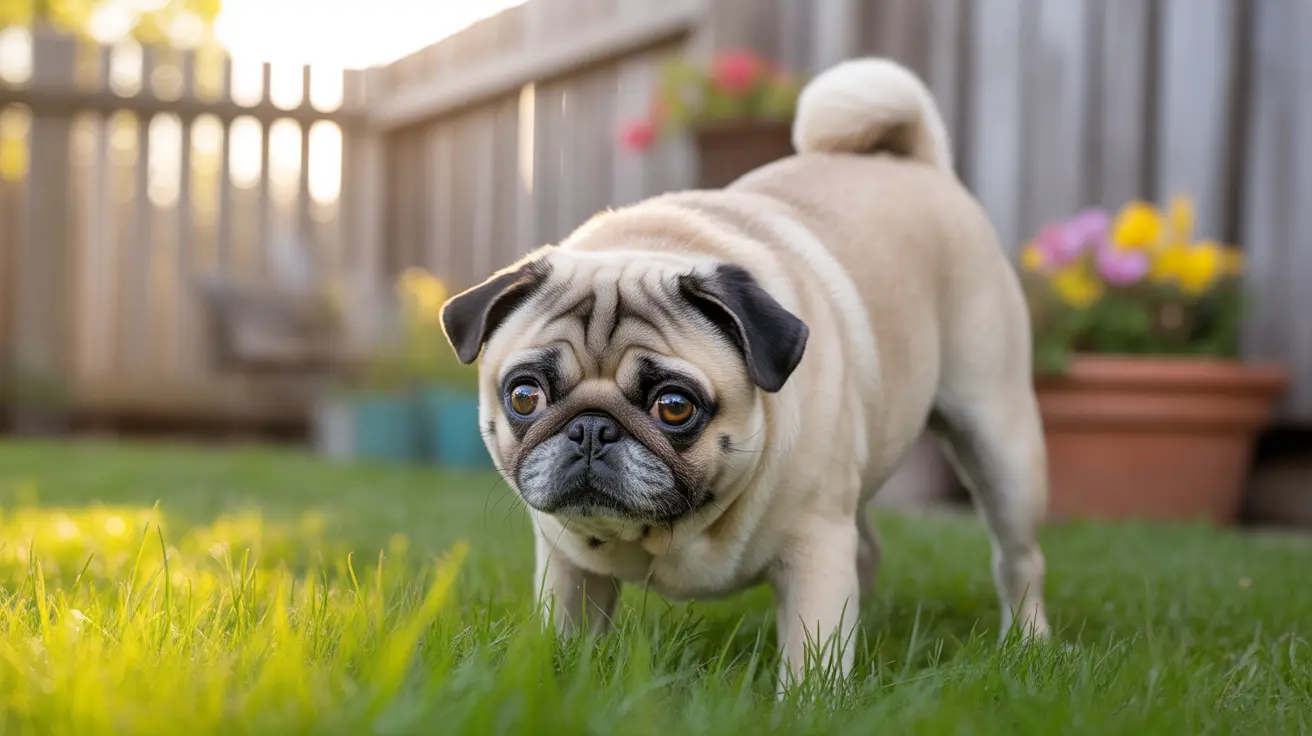As a dog owner, monitoring your pet's stool color and consistency provides valuable insights into their health. When you notice green dog poop, it's natural to feel concerned. While this unusual coloration can sometimes be harmless, it may also indicate underlying health issues that require attention.
In this comprehensive guide, we'll explore the various causes of green dog poop, from benign dietary factors to serious medical conditions, and help you understand when veterinary care is necessary.
Common Dietary Causes of Green Dog Poop
Grass Consumption
The most frequent cause of green dog poop is grass consumption. Dogs often eat grass for various reasons, including dietary supplementation or upset stomach relief. When grass passes through their digestive system, it can create either green streaks or an overall greenish tint to their stool.
Food-Related Coloration
Artificial food coloring in commercial dog treats, dental chews, or even certain dog foods can temporarily turn stool green. Similarly, consuming large amounts of green vegetables like spinach, kale, or green beans may result in green-tinted waste.
Medical Conditions That Cause Green Stool
Parasitic Infections
Giardia, a common intestinal parasite, often causes green, mucus-filled stool with a particularly foul odor. Dogs can contract Giardia from contaminated water sources, shared play areas, or contact with infected animals. Puppies and senior dogs are especially vulnerable to these infections.
Digestive System Issues
Rapid transit through the digestive tract can prevent proper bile processing, resulting in greenish stool instead of normal brown coloration. This can occur due to various factors, including:
- Sudden dietary changes
- Stress-induced digestive upset
- Inflammatory bowel conditions
- Bacterial infections
Serious Health Concerns and Emergency Signs
Toxic Exposure
One of the most dangerous causes of green dog poop is rodenticide poisoning. Rat poison often contains green dye and is extremely toxic to dogs. If you notice bright, unnaturally green stool combined with symptoms like:
- Lethargy
- Bleeding gums
- Heavy panting
- Vomiting
Seek immediate veterinary care.
Gallbladder and Bile Problems
Issues affecting the gallbladder or bile production can result in green or yellow-tinged stool. These conditions often accompany other symptoms like decreased appetite, abdominal pain, and general discomfort.
Prevention and Monitoring
To minimize the risk of health issues causing green stool:
- Supervise outdoor activities to prevent grass overconsumption
- Secure trash and potential toxins
- Maintain regular parasite prevention
- Keep water bowls clean and fresh
- Monitor shared play areas for contamination
Frequently Asked Questions
What are the most common reasons my dog's poop is green?
The most common causes are grass consumption, food coloring in treats or dog food, and eating green vegetables. These dietary causes typically resolve within 24-48 hours without intervention.
When should I be concerned and take my dog to the vet for green poop?
Seek veterinary care if green stool persists beyond 48 hours, contains mucus or blood, or is accompanied by symptoms like vomiting, lethargy, or loss of appetite.
Can eating grass or green treats cause green dog poop, and is it harmful?
Yes, grass consumption and green-colored treats can cause green stool. This is usually harmless unless excessive grass eating leads to intestinal blockage or the treats contain harmful ingredients.
How can parasites like Giardia cause my dog's stool to turn green?
Parasites like Giardia affect nutrient absorption and speed up digestive transit time, preventing proper bile processing. This results in green-tinged, often mucusy stool with a distinctive odor.
What are the signs that green dog poop is related to toxin exposure or a serious illness?
Signs of serious conditions include bright, unnatural green coloration, accompanied by lethargy, bleeding, vomiting, or behavioral changes. Rodenticide poisoning particularly requires immediate emergency care.
Remember, while occasional green stool might not be cause for alarm, persistent changes in stool color or consistency should be evaluated by a veterinarian to ensure your dog's continued health and well-being.






